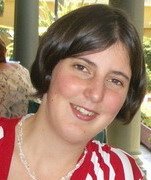Even though we set up our bookclub with the intention of sharing business-orientated books, my previous post on John van de Ruit’s bestselling book “Spud” generated some interesting discussion amongst us. Those who commented on my post wanted to read the book, so I decided to throw “Spud” into the mix. Perhaps it will be a good stress reliever, as it really hits the funny bone – or at least it did for me, but I’ll be interested to see how other people in this group respond. Part of the reason I enjoyed it so much was because I’ve been to boarding school and, although we didn’t get up to nearly as much mischief as Spud and his dormitory mates do, I can identify with the story.
After Valentin’s comments on my previous “Spud” post that the mere act of putting pen to paper is political, I initially disagreed with him. I argued that there was nothing political about this humorous, fairly light-hearted book. But after thinking about some more, I realised that “Spud” makes a political point about South African fiction - by doing so remarkably well out of being funny, Van de Ruit suggests that as a nation we are ready for entertaining, rather than issue-driven, fiction.
“Spud” is the diary of a young boy in his first year at a prestigious boarding school. It is set in 1990, a critical turning point in South African history. This creeps into the story, as Spud’s head boy is the son of apartheid hero Albert Luthuli, who educates him about the past and convinces him to join the school African Affairs society. Spud quietly develops a liberal attitude under this influence, which clashes with his father’s outrageously racist ideas. A bit of satire creeps in here, but this is about as “traditionally” political as Van de Ruit’s book gets. Not pure politics, but a good dose of humour to tickle your funny bone, so I hope it gets people from the WOW group laughing!
This blog reflects on life at work at comments on the latest news that shapes my 9-5 working day in a Corporate Communications consultancy.
About Me
- Susan Arthur
- I am a born and bred South African who has always loved to read and write. As a child my mother used to read to me and my siblings, from classics like the “Lord of the Rings” but later also from her own stories. She would write children’s stories and then use us as her test audience, but I loved to hear what she had written long after my siblings had tired of it. So I grew up in an environment of reading and writing, which inspired my love of these things. I hope to write a great book some day, and have learnt first hand the determination and will that it takes. My love of English inspired me to continue my study of it at university. I majored in Law and English in a BA degree at UCT where I found that I took to English much more than law. I enjoyed learning about South Africa’s history and the development of our liberal Constitution, which increasingly made me committed to the hope this country has for the future. Ideally, I’d like to find myself in a job where I am able to write; that allows a good mix of time spent with people and being able to work on my own.
Saturday, 09 June 2007
Subscribe to:
Post Comments (Atom)

4 comments:
Hi Susan,
I really look forward to participating in the bookclub when i return. It seems to be taking off quite well. Obviously you had a session today after the mentorship workshop. Please, please don't forget to blog about your first day at work. I really liked what Beauty had to say. Thank you for giving me your copy of the style guide. Muchos gracias. I loved Susan's article on getting funding, very incisive.
Susan, I do not necessarily mean that there is always a political message behind a novel or a book.
Sometimes, the message could be hidden or open to different interpretations. In other words, it is sometimes up to the reader to discover or assume a certain message. Then, the agenda of the author might not be always found or discovered.
Do you remember what Oscar Wilde (I hope I spell the name correct) said once?
He said that the purpose of ART (and literature as well) is to expose itself and hide the AUTHOR (the ARTIST).
Am I making any sense? I am just translating now literally what I have read long time ago in a text about Oscar Wilde in Bulgarian.
So, the ART (and literature) is about the reader and not about the author (or the artist). That is why ART could never be right or wrong, because the message hidden inside the text could be open to various and different interpretations.
And it is up to me (the reader) to find those.
I am looking forward to reading 'Spud'! By the way, isn't that word verificatin stuff annoying - last time it took me three attempts to get it right!
Thanks Valentin. I was just thinking more broadly about what it could mean that the very act of putting pen to paper is political. I think it has quite a broad meaning. I hope you read the book and that you enjoy it! Thomas, it's definitely a great book to read, especially if you are feeling stressed out... laughter, the best medicine!
Post a Comment